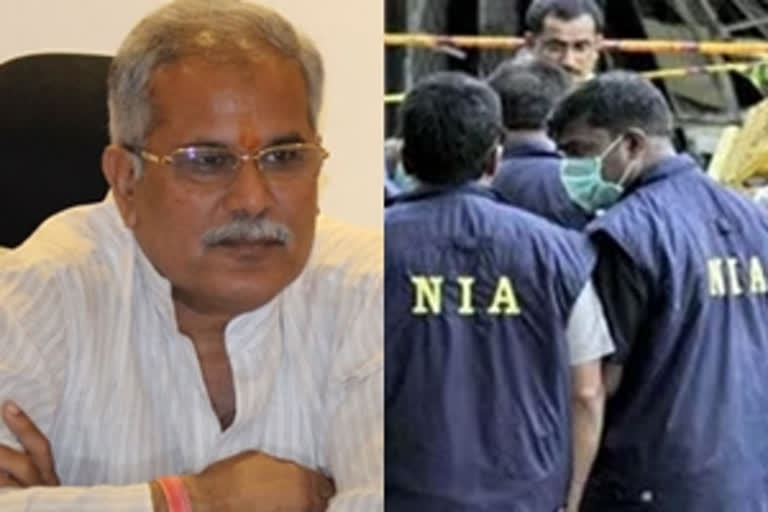New Delhi: The Supreme Court registry has issued summons to the Centre on a suit filed by the Congress-led Chhattisgarh dispensation seeking to declare the UPA-1 era National Investigation Agency (NIA) Act as unconstitutional and arbitrary on the ground that it affects the state's sovereignty and confers unbridled power on the central government.
The registry has issued summons to the Centre through Attorney General K K Venugopal on the suit filed by the Chhattisgarh government under Article 131 of the Constitution.
Article 131 of the Constitution empowers a state to move the Supreme Court directly in matters of dispute with the Centre or any other state. Chhattisgarh is the first state to challenge the Act.
"Whereas the above-named Plaintiff (Chhattisgarh) has on January 11, 2020 instituted a suit in this court against you praying for a decree in terms of the prayers made in the plaint, you are hereby required to cause an appearance to be entered for you in the registry of the court within twenty-eight days from the service upon you of this summons, exclusive of the day of such service," the summons issued under Order XXVII, rule-I said.
It further said, "...you are summoned to appear before this court by an advocate-on-record of the court to answer the plaintiff's claim on the day the case is set down for hearing upon which date you must be prepared to produce all your witnesses and all documents in your possession or power upon which you intend to rely in support of your case."
After the Centre files reply on the suit and enter an appearance, the Supreme Court rules under Order XXVII, Rule-8 provides that the matter will be listed before the Chamber judge, who in turn can issue directions, including for pleadings, admission of documents and inspections.
After completion of pleadings, the matter will be listed before a regular bench of the apex court.
The then Manmohan Singh government had come out with the law in the aftermath of the November 26, 2008, Mumbai attack, when senior Congress leader P Chidambaram was the Union home minister.
The legislation provides the NIA concurrent jurisdiction to probe terror attacks in any part of the country without any specific permission from states and in the last one decade, it has been involved in the investigation of all such cases.
The filing of petition assumes importance as the Congress government in Chhattisgarh has challenged the law on the ground that it was for the police to investigate scheduled offences in the state.
"The plaintiff (state) respectfully submits that the NIA Act is ultra vires to the Constitution and is beyond legislative competence of Parliament since the Act empowers the defendant (Centre) to create an agency for investigation, which, not withstanding the NIA, is carried out by state police, which is a subject matter of the state under entry-2, List-II, Schedule 7, of the Constitution," the plea said.
The suit, filed through standing counsel of the state Sumeer Sodhi and settled by senior advocate Vivek Tankha, said the NIA Act in its present form not only takes away the power of conducting investigation by the plaintiff (state) through police but also confers "unfettered, discretionary and arbitrary powers" on the defendant (Centre).
"Moreover, there are no rules governing the exercise of powers which gives ample discretion to the defendant to exercise its power at any juncture without providing any reason or justification for the same," the plea said.
The state government said the provision of the Act leaves no room for coordination and pre-condition of consent in any form by the Centre from the state government which clearly is against the idea of state sovereignty as envisaged under the Constitution.
"The plaintiff submits that the scheme of NIA Act is such that once brought in motion, it completely takes away the power of plaintiff to investigate the offences which have been categorised as a scheduled offence under the NIA Act and which has been committed within the jurisdiction of the State," the plea said.
It said the Act, in its essence and spirit, is not only "ultra vires" to the Constitution but is also against the "federal spirit as envisaged under our constitutional scheme wherein both the Centre and state are considered to be independent in their respective jurisdiction".
It said that police are a subject matter of List-II of the state list of the Constitution and not List-I, which deals with the subject matters of the Centre.
"Parliament has acted beyond its legislative competence in framing and enacting the NIA Act and hence, the NIA Act is ultra vires to the Constitution of India," the plea added.
PTI Report
Also Read: NIA to question former J-K MLA for links with Hizbul Mujahideen commander



